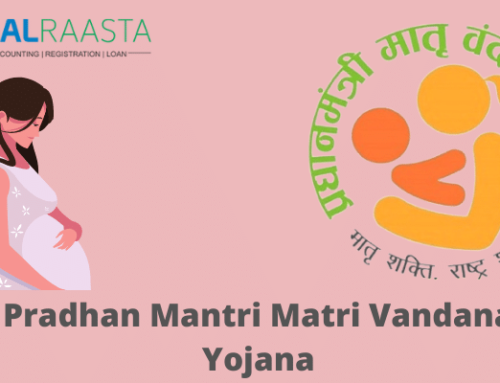What are the divorce papers required in India?
Contents
- What are the divorce papers required in India?
- What are the grounds for divorce?
- Mutual Divorce under Section 13(B) of the Hindu Marriage Act, 1955:
- Documents for divorce in India under Section 13(1) (ia) of the Hindu Marriage Act, 1955 on the grounds of “cruelty”:
- Documents for divorce in India based on “adultery” as defined by Section 13(1) I of the Hindu Marriage Act, 1955.
- Documents needed to file a divorce based on “Unsoundness of Mind” include:
- Documents needed to file for a divorce based on “leprosy” or other diseases:
- Documents needed to file for a divorce based on conversion:
- Documents required to file a Venereal Disease Divorce under Section 13(1) (v) of the Hindu Marriage Act, 1955:
- Non-compliance with the Hindu Marriage Act, 1955’s Section 13(1A)(ii) decree of restitution of conjugal rights:
- Besides, a wife can divorce her husband:
The legal procedures involved in obtaining a divorce in India are lengthy and take at least six months to complete. It is a lengthy process that requires the production and verification of numerous Divorce Papers as well as adherence to the processes for obtaining a divorce decree. In the absence of documents, the process will be significantly more time-consuming and drawn out. Depending on the grounds for divorce, a different set of documents is required. Here is a step-by-step guide to preparing your paperwork for a quick and painless divorce in India.
What are the grounds for divorce?
The Hindu Marriage Act of 1955 allows either the husband or the wife to submit a divorce petition to dissolve a marriage that was solemnized before or after the Act’s inception.
A divorce will be granted if one of the parties took the following actions:
- Had voluntary sexual intercourse with anyone other than his or her spouse after the wedding was solemnized.
- After the marriage was solemnized, the petitioner was treated cruelly.
- Had abandoned the petitioner for a continuous period of not less than two years prior to the filing of the petition.
- Converted to another faith after ceasing to be a Hindu.
- Incurably insane, or suffering from a mental condition of such a nature and severity that the petitioner cannot reasonably expect to reside with the respondent on a continuous or intermittent basis.
- Having leprosy or any similar disease, or a communicable sickness
- Being infected with a contagious venereal disease
- Joined a holy order and renounced the world.
- Those who would naturally know about it haven’t heard of you being alive for seven years or more.
Mutual Divorce under Section 13(B) of the Hindu Marriage Act, 1955:
Both parties to the marriage may bring a petition for dissolution of marriage by a decree of divorce to the District Court, subject to the restrictions of the Hindu Marriage Act. The marriage must take place before or after the Marriage Laws (Amendment) Act, 1976 takes effect. Both the husband and wife must have lived separately for at least a year before filing the petition. They must both agree on the divorce.
In the case of a mutual consent divorce, the Divorce Papers that are required are listed.
- Husband’s address proof
- Wife’s address proof
- Spouse’s marriage certificate
- Four passport-size images of both husband and wife’s marriage
- Evidence that spouses have been living separately for more than a year
- Evidence linked to unsuccessful reconciliation initiatives.
- Income tax returns over the last 2-3 years
- Information about the petitioner’s occupation and current income
- Information about his or her family background
- Information about the petitioner’s possessions and other assets
Note: The photocopies of the aforementioned documents must be submitted when the divorce petition is filed in the proper court. Aside from that, it’s usually a good idea to keep the original copy safe.
Documents for divorce in India under Section 13(1) (ia) of the Hindu Marriage Act, 1955 on the grounds of “cruelty”:
In divorce disputes involving cruelty, an advocate will need the following papers:
- Marriage certificate
- Husband’s address proof
- Wife’s address proof
- Medical reports indicating physical abuse
- Evidence of harsh behavior
- Copies of absurd behaviors, such as placing advertisements in newspapers, if any
- Statements from witnesses to the heinous event
- Four passport-size images of the husband and wife’s marriage
Documents for divorce in India based on “adultery” as defined by Section 13(1) I of the Hindu Marriage Act, 1955.
In divorce cases involving infidelity, an attorney will need the following papers:
- A marriage license.
- Proof of both husband and wife’s addresses.
- Evidence of a single act of adultery.
- If applicable, evidence of a long-term adulterous connection or cohabitation.
- Photographs of the partner and the other person performing the act.
- Testimony from witnesses to the adulterous act.
- Evidence of extramarital affairs with someone other than the spouse after the marriage.
- If the spouse has DNA evidence linked to his or her partner’s adultery, they will require the services of a DNA tester. A sample will be provided so that the researcher can testify in court about his or her findings.
- Four passport-size photographs of the husband and wife’s marriage.
Documents needed to file for a divorce based on desertion:
When accompanied by a reasonable cause and without the consent of the other party, desertion becomes a ground for divorce. The following are the documents you’ll need to file for a desertion divorce:
- Factum deserendi separation (The term “deserdendi” refers to the intention of abandoning one’s spouse.) • The intention to desert, or animus deserendi.
- A marriage license.
- Evidence of one spouse’s complete departure from carrying out his or her marital responsibilities over a period of two years.
- Husband’s address proof
- Evidence of either constructive or genuine desertion, depending on the situation.
- Wife’s address proof
- Four passport-size photographs of the husband and wife’s marriage.
- Evidence that the desertion was not voluntary.
- Proof that the desertion was made without justification.
Documents needed to file a divorce based on “Unsoundness of Mind” include:
Mental sickness or insufficient development of the mind is referred to as “unsoundness of mind” or “mental ailment.” It could potentially be a psychopathic disorder or a neurological condition.
In divorce situations involving unsoundness of mind, an attorney will need the following documents:
- Husband’s address proof
- Wife’s address proof
- Marriage Certificate
- Four passport-size photos of the couple’s marriage
- Proof that two years have passed since the marriage
- Confirmation that the petitioner was unaware of the disorder at the time of marriage
- Evidence that the person has been suffering from a continuous or intermittent mental disorder of such kind
- Additionally, evidence that the petitioner has found it impossible to live with the respondent
Documents needed to file for a divorce based on “leprosy” or other diseases:
The documents listed below are those that an attorney will need in a divorce case involving leprosy or any similar ailment.
- Husband’s address proof
- Wife’s address proof
- A marriage certificate proving the couple’s marriage for the previous two years.
- Four passport-size photographs of the husband and wife’s marriage.
- A medical certificate stating that you have leprosy.
- Doctors’ statements attest to the medical certificate’s legitimacy.
- Proof that the petitioner was unaware of the sickness at the time of the marriage.
- There is proof that leprosy was incurable and in a serious form.
- In addition, witnesses must show that the person is unsuited for social interaction.
Documents needed to file for a divorce based on conversion:
In divorce cases involving conversion, an attorney will need the following documents:
The individual must voluntarily abandon Hinduism or undergo a formal ceremonial conversion to another religion.
- Husband’s address proof
- Proof of wife’s address
- Certificate of Marriage
- Four passport-size photographs of the husband and wife’s marriage
- Proof that a formal ceremonial conversion to another religion has occurred.
- Witness statements or images, if any, proving the other spouse’s conversion
- Certificate of conversion
- Evidence showing the person was not forced to convert to another religion, i.e. it was a voluntary conversion.
- Proof that it was not done to marry another person and that the person has entire confidence in the religion to which he has converted.
Documents required to file a Venereal Disease Divorce under Section 13(1) (v) of the Hindu Marriage Act, 1955:
In situations involving Venereal Disease in a Communicable Form, an attorney will need the following documents:
- Husband’s address proof
- Wife’s address proof
- A marriage certificate proving they’ve been married for three years and the sickness is still present.
- Four passport-size photographs of the husband and wife’s marriage.
- The respondent’s medical certificate proves that he or she has a venereal illness that can be passed on to the other spouse or child.
- The petitioner’s medical certificate at the time of marriage proves that he or she was free of the ailment. He/she is also not attempting to cover their mistakes by blaming the other person.
As a result, these are the essential documentation in divorce cases where one of the spouses has a communicable form of venereal disease.
Non-compliance with the Hindu Marriage Act, 1955’s Section 13(1A)(ii) decree of restitution of conjugal rights:
- A marriage license.
- Husband’s address proof
- Wife’s address proof
- Four passport-size photographs of the husband and wife’s marriage.
- Proof that neither of them has complied with the restitution of conjugal rights decree.
- Proof that one of them is mistreating the other in order to prevent the other from following the decision.
Besides, a wife can divorce her husband:
- if he gets remarried (before the commencement of the Act).
- if her husband is found guilty of rape;
- if her marriage was solemnized before the age of 15 years and she did not accept the marriage before reaching the age of 18 years.
As a result, as you can see, some of the documents are standard regardless of the grounds for divorce. However, depending on the nature of the divorce, other Divorce Papers may be required to substantiate the grounds for divorce. This is merely to provide documentary evidence to support one’s argument. The requirement of documentation by authorities is not a hard and fast regulation. Instead, it may assess what is most appropriate and beneficial to your situation. As a result, it will be made. A divorce application form can be found on the internet. You can go over it whenever you want.
Read, also: Changing Name In India: Procedure, Fees and Other Steps To Follow
Divorce Law In India: A Comprehensive And Detailed Study






